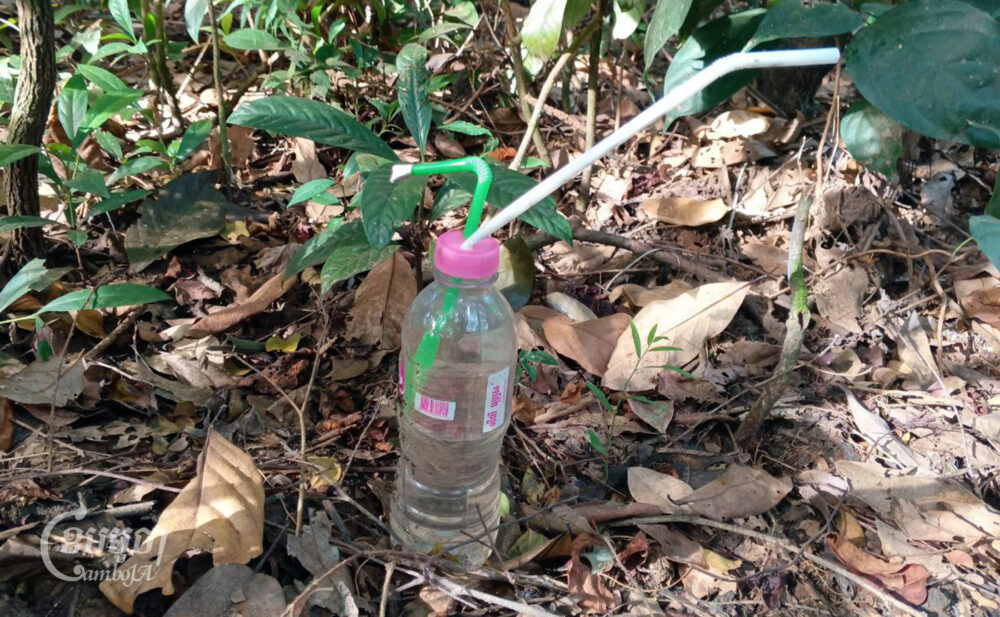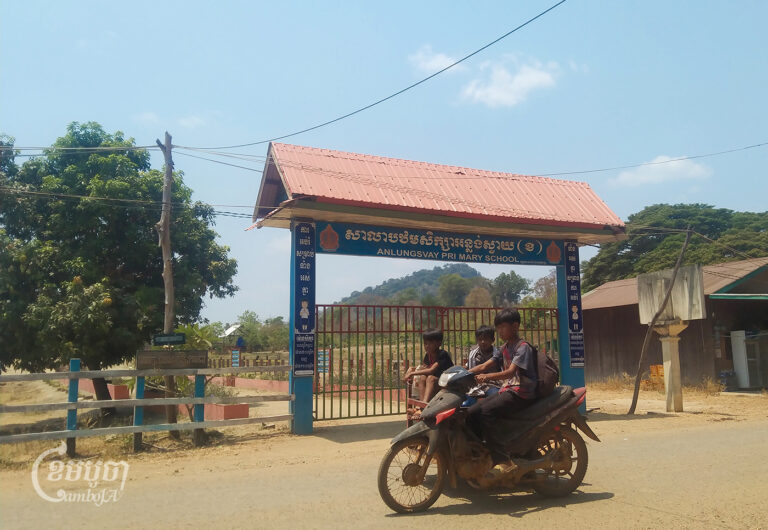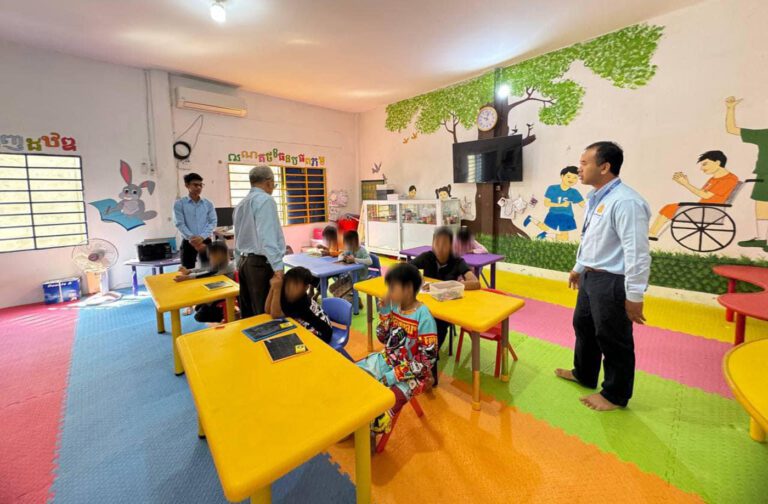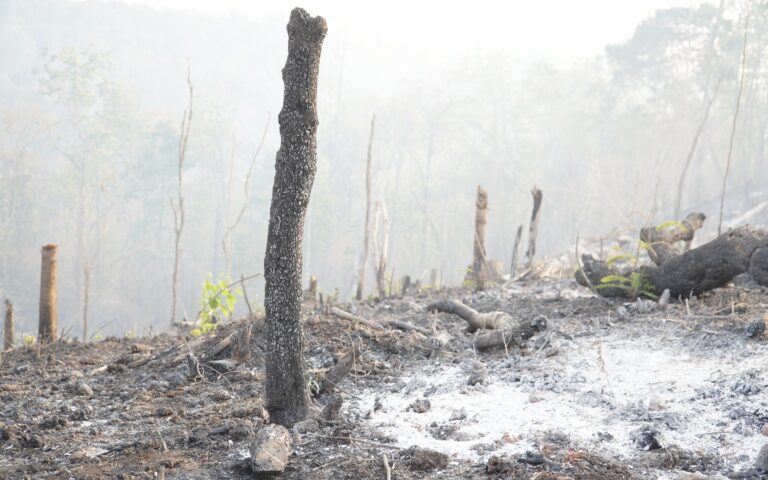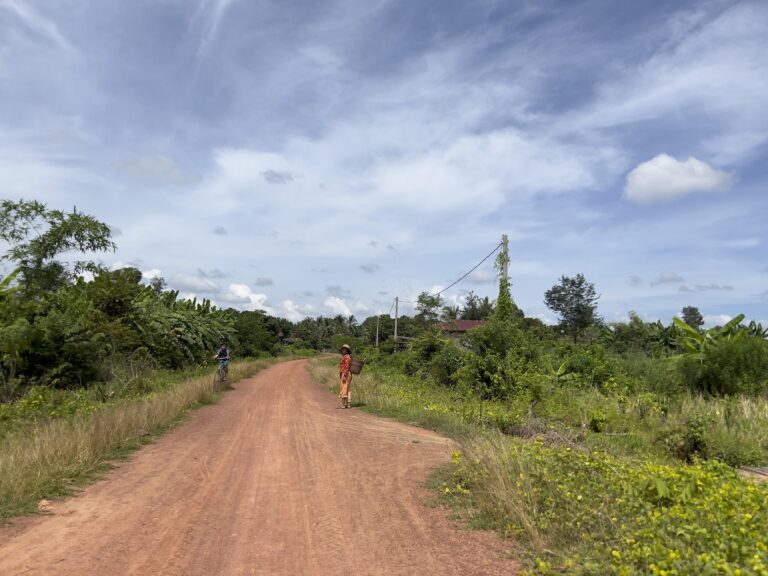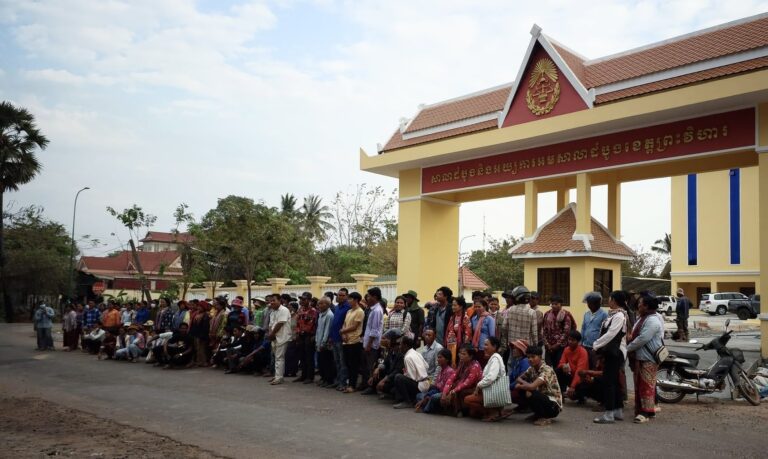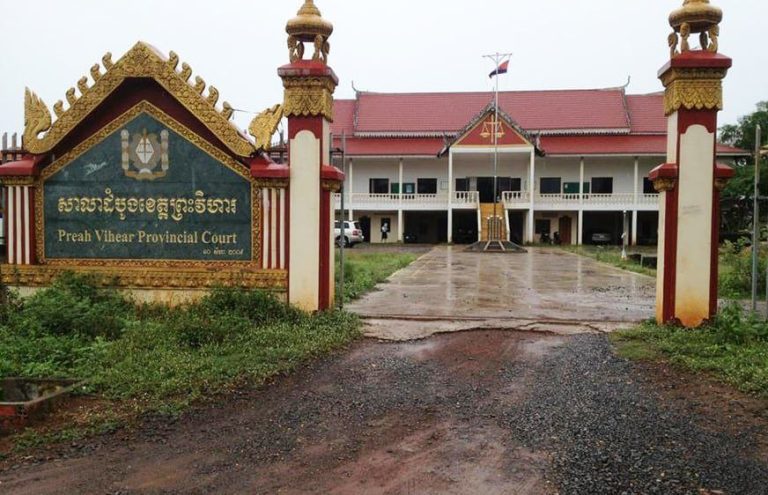Local authorities and indigenous villagers in a commune in Ratanakiri are gravely concerned over the high percentage of their children being involved in drugs, with the propensity of becoming worse with time.
Sal Kheng, first deputy chief of Pak Nhai commune, said between 30% and 40% of youths, aged 14 to 18, in his commune are abusing drugs. There are also a number of adults, with children and grandchildren, and even a police officer, using drugs.
Kheng has five children including an 18-year-old son, his youngest, who suffered brain damage in 2022 due to the effects of the drugs. He expressed despair because he was expecting to live out his old age with his youngest son.
“He is my fifth child. I am saddened. I was hoping that he would look after me when I am old but now he is like that. I don’t know what to do. [I feel] hopeless,” he lamented.
Pak Nhai commune has four villages with a population of 1,232 families, or about 5,080 people in total, most of whom are indigenous Jarai. Villagers said the drug problem has been ongoing for more than 10 years, and in the last three years, the number of users and problems caused by drugs have increased.
Sev Lin, Lom village chief in Pak Nhai commune, said his 22-year-old son used to do drugs and caused trouble at home. Late last year, he got married and went to live with his wife in another village. “I don’t know if he is still doing drugs or not.”
The village chief is worried that his children and those in other villages could fall victim to drug abuse in the future.
“Yes, [I am] worried. I’m worried that there will be an impact in the future. Now, as I always say, it has not gotten worse yet,” said Lin.
Second deputy chief of Pak Nhai commune Sev Finh recollected that drug users resorted to violence and used knives previously to threaten the villagers whenever a conflict happened.
As a result, Finh said, villagers lived in fear and did not dare go alone to the farms or places where there are few people, including those near their houses.
“‘Crazy’ people always walked around the farms or forest areas like in our [cashew plantation]. This has affected [us]. Previously, women would go into the plantations alone, but now they are afraid. That’s it! Nevermind the plantations, people dare not go to areas near their houses to even fetch water,” said Sev Finh.
According to the local authority and villagers, about 10 people in the commune, mostly young people, have been suffering from brain damage or so-called “insanity”, owing to the drugs. At least three drug addicts have committed suicide by hanging in 2022 and early 2023.
Local officials and villagers also shared that one of the five police officers in Pak Nhai commune has been addicted to drugs for about five years now.
A CamboJA reporter tried to contact the police officer for comment, but calls went unanswered.
“I have heard rumors that one policeman was doing drugs but I don’t have the details because I don’t have the authority to question the police,” said Cheng Heng, Pak Nhai commune chief.
Regarding the number of drug users, Heng confirmed there are people doing drugs in the commune, but he could not say for sure if 40% of the commune children were in effect drug addicts as mentioned by the officials and other villagers.
However, he concurred with the others that the villagers are afraid to travel to lonely places.
“We need to know how to protect [ourselves] from drug users. Our people don’t dare walk alone due to the drug addicts. We know that people who use drugs [sometimes] don’t even recognize their parents. So, we take precautions, for instance, when we go out at night, we don’t go alone,” said Heng.
Commenting on a policeman who allegedly became a drug user, Pak Nhai commune police chief Thoeun Chanthol told CamboJA that the person in question has been reported to the superior and is no longer active in his duties. “If we want to know whether someone uses drugs or not, there must be a urine test, but I have no authority to conduct the test.”
Chanthol said he was having a hard time because of the small number of police officers at his post, making it difficult for them to work to strengthen security in the village. He said nightly patrols seem to scare only small targets, while the “big targets” always know in advance when and where the officers are patrolling.
“We try to patrol every evening, but this patrol is just a threat to a small number of bad people. The professional ones know what time we work and where we work. So, [we] rely on people to inform us and we try to get there immediately,” said Chanthol.
O’ Yadav district governor Ma Vicheth and Ratanakiri provincial police chief Ung Sopheap could not be reached for comment.
Sou Serey, spokesperson for Ratanakiri provincial administration, mentioned that he does not believe that there are up to 40% of young people using drugs in Pak Nhai commune. Neither does he believe the allegations that a commune police officer was a drug user as provincial authorities are strict in the prevention of drug crimes. However, he said he would look further into the issues raised by the people and local authorities in Pak Nhai commune.
“Generally, we are not fully aware of [the problem], but I have often reminded people [not to do drugs]. Sometimes our officers who investigate cases keep information from me. But, we don’t blame them.
“Sometimes, we can do it because we know it clearly. However, I will try to dig deeper into the case, and there will be a time when I have to go on my own,” said Sou Serey.

Article 40 of the Law on Drug Control stipulates that possession, transportation or trafficking of drugs is punishable by law with a jail term of two to five years, and a fine of between four and 10 million riel. Those who are caught possessing, transporting or trafficking drugs such as amphetamines, methamphetamine (Ecstasy) with a net content between 15 grams and 80 grams could face imprisonment of five to 10 years and a fine of 10 to 20 million riel. Those found possessing, transporting or trafficking drugs such as amphetamines, methamphetamine or ecstasy in quantities of 240 grams or more shall be jailed up to 30 years or face life imprisonment.
In 2010, the Ministry of Interior launched the Safe Village-Commune Policy with a series of revisions focused on preventing the use and distribution of drugs. The new government’s Pentagonal Strategy also focuses on strengthening security and order for the people at the grassroots level.
Interior Minister Sar Sokha said in August, upon taking office, that he would not allow any officials, who are combating drug crimes, abuse citizens and destroy society.
“Members of the armed forces, who are found to be involved in the use or trafficking of drugs should not be with us because we don’t benefit [anything] from keeping them. The thing is, [we do not know] how many years he has been doing it [but] because of him, hundreds of thousands of people are suffering,” Sokha said.
Back in Pak Nhai commune, Romors Svang said drug users have increased steadily, calling on relevant bodies to take measures to resolve the problem because everyone in the village is living in fear.
“For me, I would like the government, and people who are responsible for [crime] prevention such as the authority and police to take real measures, not the way they do now where prevention is just lip service, but crime continues to happen. That’s not good. Yes, my request is also for higher authorities to investigate and find them [drug crimes], so that they don’t spread,” said Romors.
Din Khorny, coordinator for the Adhoc Human Rights Defenders Association in Ratanakiri province, said if the law was effectively enforced, drug prevention would have been effective.
In Ratanakiri, as well as other provinces in the country, drug addiction is destroying young people, household incomes, and a young workforce, which should be supporting the national economy.
“As we already know, youths are the driving force for social development. They are the pillars of the nation. So, if the pillar is rotten, what hope is there for the society? We cannot depend on the older generation. The hope is on youths and the younger generation as they have the energy and potential. If they waste their lives on drugs, who do we rely on?” Khorny said.
Meas Sovann, executive director of the Cambodian Drug Victims Association, said 147 drug addicts are receiving treatment at his rehabilitation center, which employs national and international standards, including Buddhist psychological education.
His center, which has been operating since 2005, has received more than 13,000 drug addicts, although it is only equipped to handle less than 50 percent of that number. He shared that drugs have a serious effect on the nervous system, which exposed them to diseases.
“They suffer from itches, fever or it affects the stomach and intestines. When the stomach and intestines are affected, the nervous system is badly affected. So, we must work together to help [solve the problem].
“We cooperate with local authorities and families so that we can help save them [drug addicts] as the effect on the brain is significant,” said Sovann.
A report from the Ministry of Interior revealed that four tons of drugs were seized in 2021. A year later, the authority confiscated more than two times that amount at 15 tons.
Former Minister of Interior Sar Kheng once raised concerns that authorities seized tons of drugs and hundreds of tons of narcotics, but failed to catch the ringleaders and their accomplices, resulting in continued crimes.
In the last three months, the government arrested 20 law enforcement officers for being allegedly involved in drug trafficking in Battambang, Kratie, Phnom Penh, Kampong Speu and Sihanoukville. In November, Deputy Director of the Anti-Drug Department of the Ministry of Interior, General Van Kosal and four accomplices involved in drug offenses were arrested.


